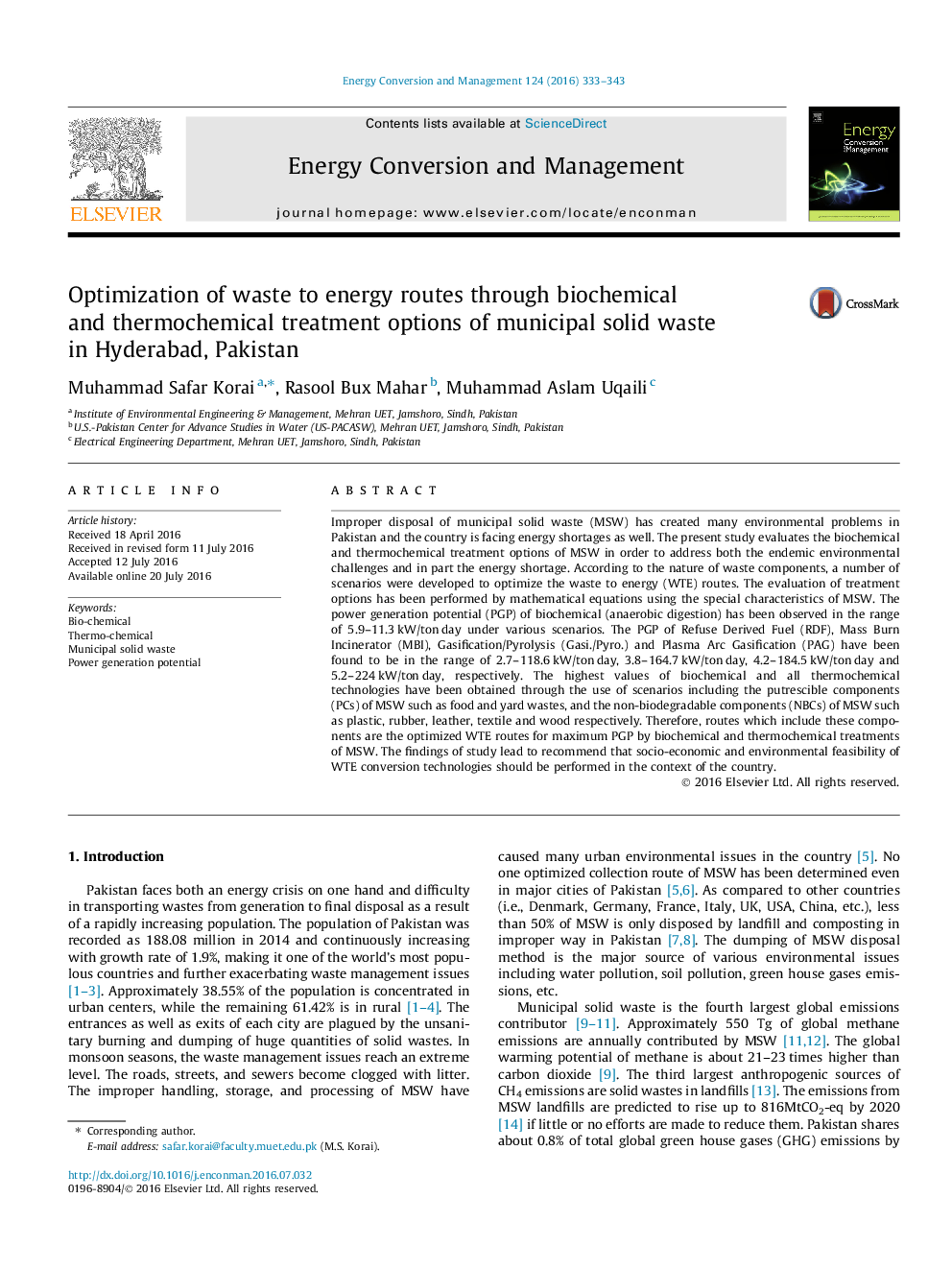| کد مقاله | کد نشریه | سال انتشار | مقاله انگلیسی | نسخه تمام متن |
|---|---|---|---|---|
| 764966 | 1462838 | 2016 | 11 صفحه PDF | دانلود رایگان |
• Existing practice of municipal solid waste management of Hyderabad city, Pakistan have been analyzed.
• Development of scenarios on basis of nature of waste components for optimizing waste to energy route.
• Analyzing the biochemical and thermochemical potential of MSW through various scenarios.
• Evaluation of various treatment technologies under scenarios to optimize waste to energy route.
Improper disposal of municipal solid waste (MSW) has created many environmental problems in Pakistan and the country is facing energy shortages as well. The present study evaluates the biochemical and thermochemical treatment options of MSW in order to address both the endemic environmental challenges and in part the energy shortage. According to the nature of waste components, a number of scenarios were developed to optimize the waste to energy (WTE) routes. The evaluation of treatment options has been performed by mathematical equations using the special characteristics of MSW. The power generation potential (PGP) of biochemical (anaerobic digestion) has been observed in the range of 5.9–11.3 kW/ton day under various scenarios. The PGP of Refuse Derived Fuel (RDF), Mass Burn Incinerator (MBI), Gasification/Pyrolysis (Gasi./Pyro.) and Plasma Arc Gasification (PAG) have been found to be in the range of 2.7–118.6 kW/ton day, 3.8–164.7 kW/ton day, 4.2–184.5 kW/ton day and 5.2–224 kW/ton day, respectively. The highest values of biochemical and all thermochemical technologies have been obtained through the use of scenarios including the putrescible components (PCs) of MSW such as food and yard wastes, and the non-biodegradable components (NBCs) of MSW such as plastic, rubber, leather, textile and wood respectively. Therefore, routes which include these components are the optimized WTE routes for maximum PGP by biochemical and thermochemical treatments of MSW. The findings of study lead to recommend that socio-economic and environmental feasibility of WTE conversion technologies should be performed in the context of the country.
Journal: Energy Conversion and Management - Volume 124, 15 September 2016, Pages 333–343
